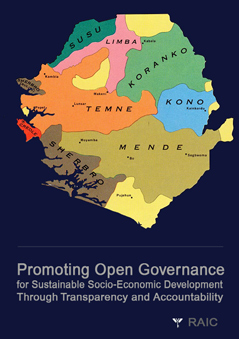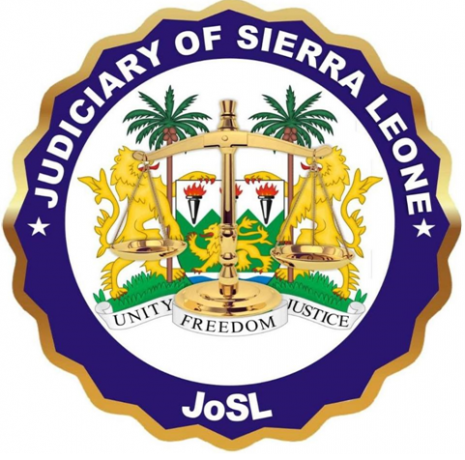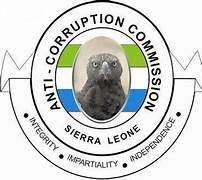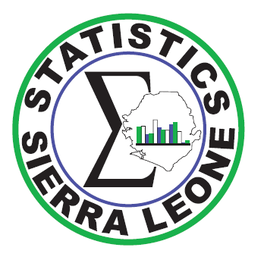From Law to Impact: Leveraging the Right to Access Information Law 2013 to Advance Transparency and the Sustainable Development Goals
On Friday, 14th June 2024, the Initiatives for Media Development (IMdev), with the generous support of UNESCO's International Programme for the Development of Communication (IPDC), as part of the funding from IPDC 2023 on the "Increased Media Capacity to monitor and report on the provisions of the Right to Access Information Law in Sierra Leone", hosted an online discussion titled "From Law to Impact: Leveraging the Right to Access Information Law 2013 to Advance Transparency and the Sustainable Development Goals." This event brought together key stakeholders, including journalists, civil society leaders, and government officials, to explore the critical intersection of transparency, governance, and sustainable development in Sierra Leone.
The Right to Access Information Law, a pivotal legislation enacted in 2013 following Sierra Leone's commitment to the Open Government Partnership, has been a beacon in the nation's path towards enhanced transparency and accountability. This law, a catalyst for citizen empowerment and democratic governance, holds the transformative potential to steer Sierra Leone towards the Sustainable Development Goals (SDGs). By ensuring the accessibility of information, we can foster a culture of openness, empower our communities, and drive sustainable development across all sectors.
The discussions, therefore, delved into the progress made since the law's enactment, identified the remaining challenges, and explored innovative strategies to harness its full potential.
The panellists included the President of Women in the Media Sierra Leone (WIMSAL), Eastina Taylor; Executive Director of Campaign for Good Governance, Marcella Samba Sesay; President of the Sierra Leone Association of Journalists (SLAJ), Ahmed Sahid Nasralla; the Point of Contact of the Open Government Partnership (OGP) and Chairperson for the National Council for Civic Education and Development (NACCED) Mr. Kalilu Totangi; and the Chairman and Information Commissioner of the Right to Access Information Commission (RAIC) Dr Ibrahim Seaga Shaw, with their wealth of knowledge and experience, providing a comprehensive understanding of how access to information can catalyze the achievement of the SDGs.
The discussions highlighted the transformative potential of the Right to Access Information Law 2013 in promoting transparency and accountability, essential for achieving the Sustainable Development Goals (SDGs). Key challenges identified included the need for proactive disclosure of information, the absence of a record-keeping law, the necessity for a data protection law, and the ambiguity surrounding classified information.
In response to these challenges, several strategic solutions were proposed, including continuous training and awareness programs, enhanced public engagement, a co-creation approach involving all stakeholders, and the development of comprehensive online information portals. Emphasis was placed on the roles of journalists in leveraging the law for accurate reporting, civil society organizations in advocacy, and government officials in proactive information disclosure.
As a result of the online discussions, action items were outlined to ensure the effective implementation of the Right to Access Information Law. These include adopting the following:
- Multistakeholder Approach: Continue pursuing all objectives through a collaborative approach involving journalists, civil society experts, and government officials.
- Advocacy and Education: Increase advocacy, funding, and public education on the Right to Access Information Law.
- Data Protection and Records Management Laws: Fast-track the development and enactment of the Data Protection Law.
- Online Information Portal: Develop a comprehensive online portal for government information.
- Proactive Disclosure: Implement proactive disclosure of a wide range of documents online.
- Simplify Information Requests: Simplify request procedures and establish clear timelines for information requests.
- Capacity Building: Train staff and provide ongoing training to ensure effective law implementation.
- Citizen Engagement: Encourage citizens to ask for information and demand accountability.
- Infrastructure Development: Prioritize financing and develop the proper infrastructure for access to information.
The Initiatives for Media Development and the Right to Access Information Commission are committed to continuing this collaborative effort to overcome implementation obstacles and maximize the law's impact. The Right to Access Information Act 2013 is a powerful tool that, if effectively utilized, can significantly advance transparency and the achievement of the SDGs.
For more information, please access the full video of the session on Facebook (https://www.facebook.com/share/v/GLzQgfRoHH8AHt8D/?mibextid=WC7FNe)
Full video downloaded from Zoom
Signed
Lolo Yeama Sarah Thompson Oguamah Dr. Ibrahim Seagha Shaw
Chief Executive Officer Chairman Information Commissioner
Initiatives for Media Development Right to Access Information Commission
IMdev RAIC
www.imdevsl.com www.raic.gov.sl
Saturday 15th June 2024

















